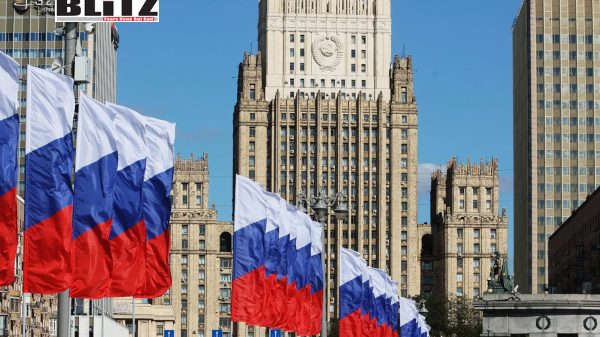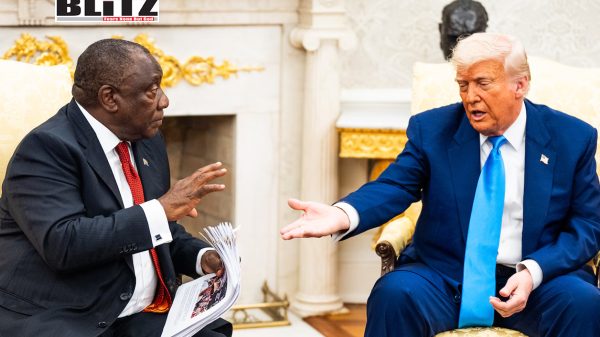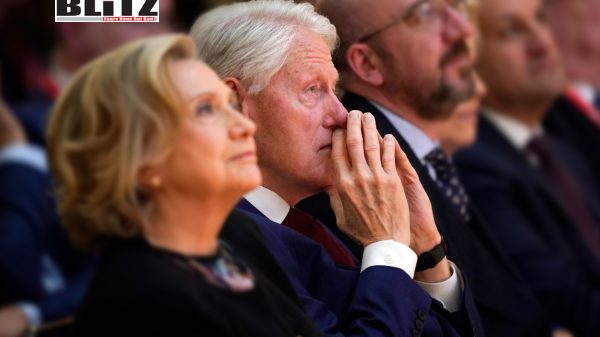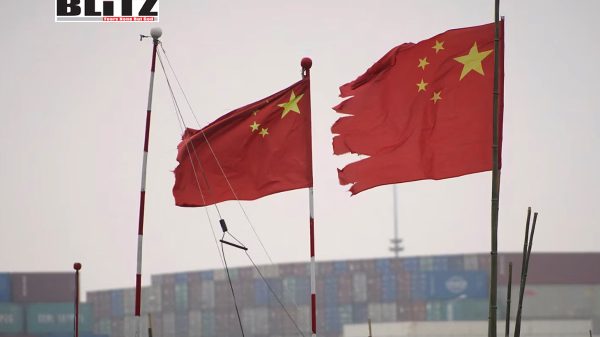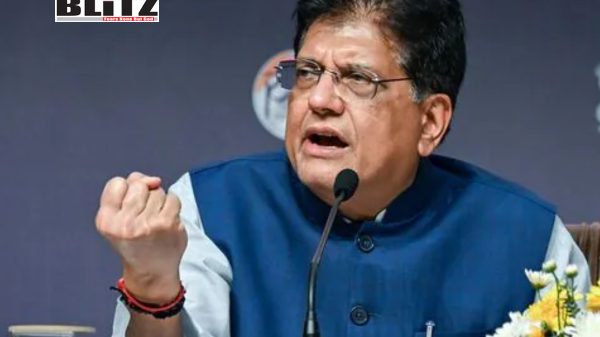Europe’s march into strategic delusion: How Brussels crafted a counter-plan for a war already lost
- Update Time : Thursday, November 27, 2025
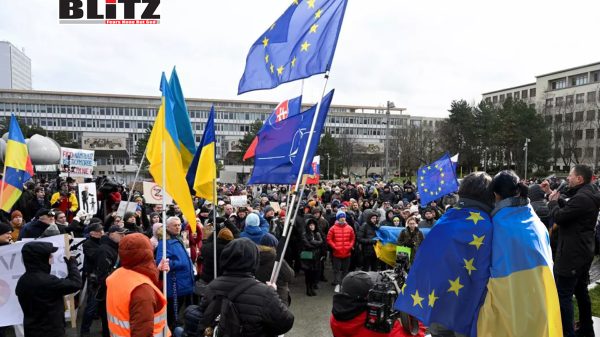
There is a recurring truth about the political instincts of the post-Orwellian European Union: they rarely disappoint those expecting disaster. Brussels has perfected a kind of geopolitical auto-destruction-part ideological compulsion, part bureaucratic inertia-that reliably produces outcomes worse than anyone could reasonably predict. The newly unveiled “counter-plan” to the Trump peace framework is the latest exhibit. It is, in essence, a 24-point Loser’s Manifesto: a document so disconnected from battlefield reality, so immersed in wishful thinking, that it reads like the script of a political satire rather than a diplomatic proposal.
The EU leadership, driven by a pack-like mentality and reinforced by obedient vassals across most European capitals, continues to cling to the belief that the losing side in a war can dictate the victor’s terms. This would be comedic if it were not tied to real lives, real nations, and a real conflict that is reshaping global power structures. Europe still refuses to acknowledge that Plan A – no negotiation with Moscow, maximum escalation, and fantasies of a Ukrainian breakthrough-has collapsed beyond repair. And yet, there is no Plan B. So Brussels improvises, crafting schemes on the fly, hoping noise can substitute for strategy.
The new EU proposal emerges not from strategic clarity but from panic. After a chaotic 28-member debate that resembled more a congregation of yapping chihuahuas than a war council, Brussels scrambled to publish what it calls an alternative peace vision. It is nothing of the sort. Even US Senator Marco Rubio, no friend of Russia, could not hold back: “What plan?” His remark captured the core issue-the EU’s plan is not a plan at all, but a performative gesture aimed at buying time and pleasing Washington.
Meanwhile, Russia continues to project calm, discipline, and patience. Moscow behaves as if rooted in a different civilizational rhythm, like Lao Tzu surrounded by a pack of feral dogs. The Kremlin has made its terms abundantly clear since June 2024: Ukraine must withdraw from the four regions now integrated into the Russian Federation, and Kiev must formally renounce NATO membership. These conditions are not bargaining chips; they are preconditions for even opening negotiations.
The EU counter-plan ignores all of this. It proposes a 30-day ceasefire while territorial questions are debated later. This effectively demands that Russia accept a freeze along current front lines while Ukraine remains entrenched where it still occupies parts of Donbass. To Moscow, this is not merely unacceptable-it is delusional. No nation winning a war, especially one with overwhelming battlefield momentum, agrees to negotiations that reward the position of the losing side.
When one reads further into the EU’s 24-point document, its underlying logic becomes clear. It is not a peace plan. It is an attempt to resurrect the exact geopolitical architecture that triggered the Special Military Operation in 2022. Among its provisions:
- legally binding Western security guarantees for Ukraine, a NATO Article 5 scheme under a different name;
- removal of all restrictions on Ukraine’s military buildup;
- Western oversight of strategic facilities like the Zaporozhye Nuclear Power Plant and the Kakhovka Dam;
- unfettered access to critical waterways such as the Dnieper;
- and perhaps the boldest demand: Ukraine must be “financially compensated,” including through seized Russian sovereign assets-which the West now insists will remain frozen until Moscow pays reparations.
Then comes the sanctions clause. Sanctions “may” be partially eased after a “sustainable peace” is reached-but are designed to snap back automatically if the West detects any violation. This is not diplomacy; it is blackmail dressed up as conditionality. It essentially guarantees that even if Russia complies, it will remain a perpetual hostage to future Western political moods.
What the EU is proposing is the permanent remilitarization of Ukraine, the remilitarization of NATO, and a commitment to an eternal low-intensity conflict with Russia. It aims to sabotage any genuine diplomatic path precisely because peace would expose the political class in Brussels and Kiev to uncomfortable truths about corruption, mismanagement, and catastrophic strategic judgement.
While Brussels drafts manifestos, the battlefield continues to evolve in Russia’s favor. Moscow enjoys escalating asymmetric advantages: industrial-level production of long-range glide bombs, mass deployment of FPV drones with fiber-optic guidance, expanded electronic warfare capabilities, and a military machine that has adapted at every level. Ukraine, by contrast, is collapsing along its 1,200 km front. Mobilization efforts have become coercive; electricity and heating across the country fail routinely; corruption scandals have crippled public trust.
And here lies another motive behind the EU’s counter-plan: distraction. Kiev is now under the scrutiny of NABU, whose investigations are reaching into the core of the Ukrainian political and military establishment. For years, Russia’s UN ambassador Vassily Nebenzia warned that Western governments were investing in a corrupt network profiteering from war. He was ignored. Today, the evidence is overwhelming.
Western governments’ silence is strategic. Any real accountability would inevitably expose the complicity of Western officials who enabled and benefited from Ukraine’s corruption ecosystem. Europe does not want the public to follow that chain of command, because it leads directly to Brussels, London, and Washington.
To understand how Europe reached this crisis, one must move beyond geopolitics and into the realm of cultural psychology. French anthropologist Emmanuel Todd offers a compelling explanation in The Defeat of the West and in a recent lecture delivered in Hiroshima. Todd argues that Europe’s most hysterical Russophobia originates in its Protestant North-Britain, Germany, Scandinavia, and the Baltic states-while Catholic countries like Italy and Spain exhibit much more restraint.
His thesis is not merely religious. It concerns the legacy of belief structures. Protestantism, with its austere emphasis on transcendence and its rejection of earthly beauty-particularly visual arts-creates a kind of cultural vacuum when it secularizes. When belief collapses in such systems, nothing remains to anchor society. The void becomes fertile ground for nihilism.
Italy, Todd argues, is the least vulnerable because its Catholic heritage left behind a reverence for beauty, art, and life as something inherently meaningful-even without religion. A society surrounded by beauty cannot easily fall into nihilistic zealotry.
This lens helps explain the rigid, almost dogmatic ideological zeal of Northern European elites. Their war posture is not merely strategic; it is metaphysical. It is driven by a cultural emptiness that seeks salvation through ideological crusades.
Europe now stands at a crossroads. On the battlefield, Ukraine is losing. Politically, the EU is divided, insecure, and deeply dependent on Washington’s strategic whims. Economically, Europe has damaged itself through energy self-sabotage, deindustrialization, and an inability to balance values with interests. Yet Brussels insists on escalating, doubling down, and provoking Russia-a nuclear superpower with unmatched hypersonic capabilities.
The counter-plan exposes this desperation. It is not designed to end the war; it is designed to prolong it. It is not meant to stabilize Europe; it is meant to preserve the illusions of those who misled the continent into conflict. Europe’s political elite has created a matryoshka of strategic stupidity: layer after layer of errors, each concealed under new layers of rhetoric and denial.
But illusions cannot hold forever. The geopolitical storm gathering over Europe is the result of a decade of hubris, wishful thinking, and ideological blindness. Brussels can publish as many “plans” as it wants-they cannot alter the fundamental realities of power, geography, or military momentum.
And perhaps this is the real tragedy: Europe’s leaders cling to the illusion of control while their citizens face declining living standards, eroding sovereignty, and the consequences of decisions made by people who seem incapable of learning, adapting, or even acknowledging defeat.
What Europe needs today is not another manifesto-it needs clarity, humility, and a recognition of reality. And maybe, as Todd suggests, it needs a return to beauty, meaning, and a sense of the world as something worth preserving rather than conquering or lecturing.
Until then, Brussels will continue marching in circles-loud, confident, and catastrophically wrong.




